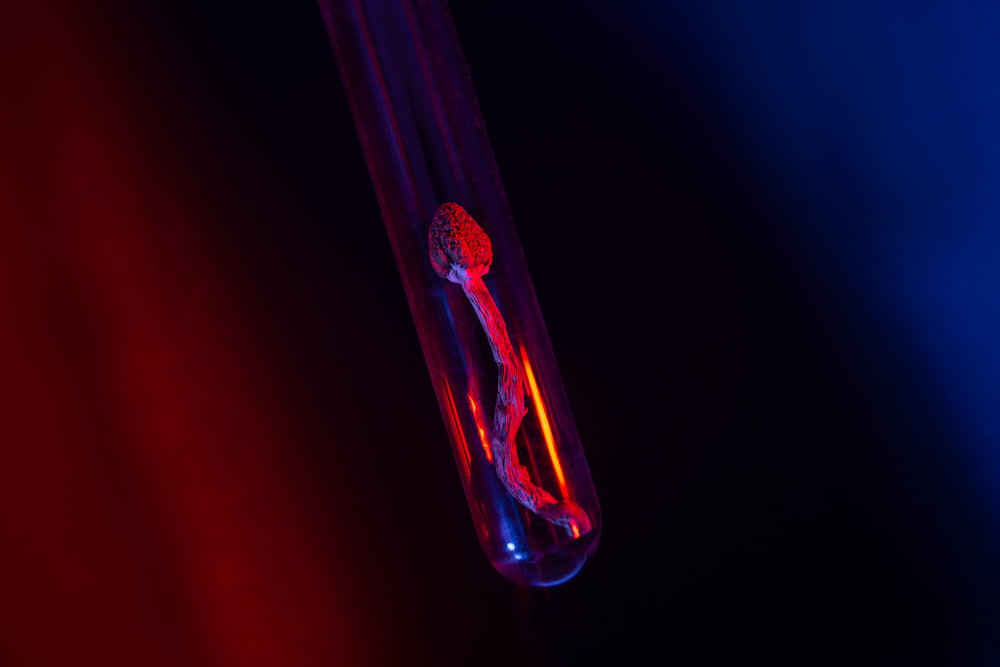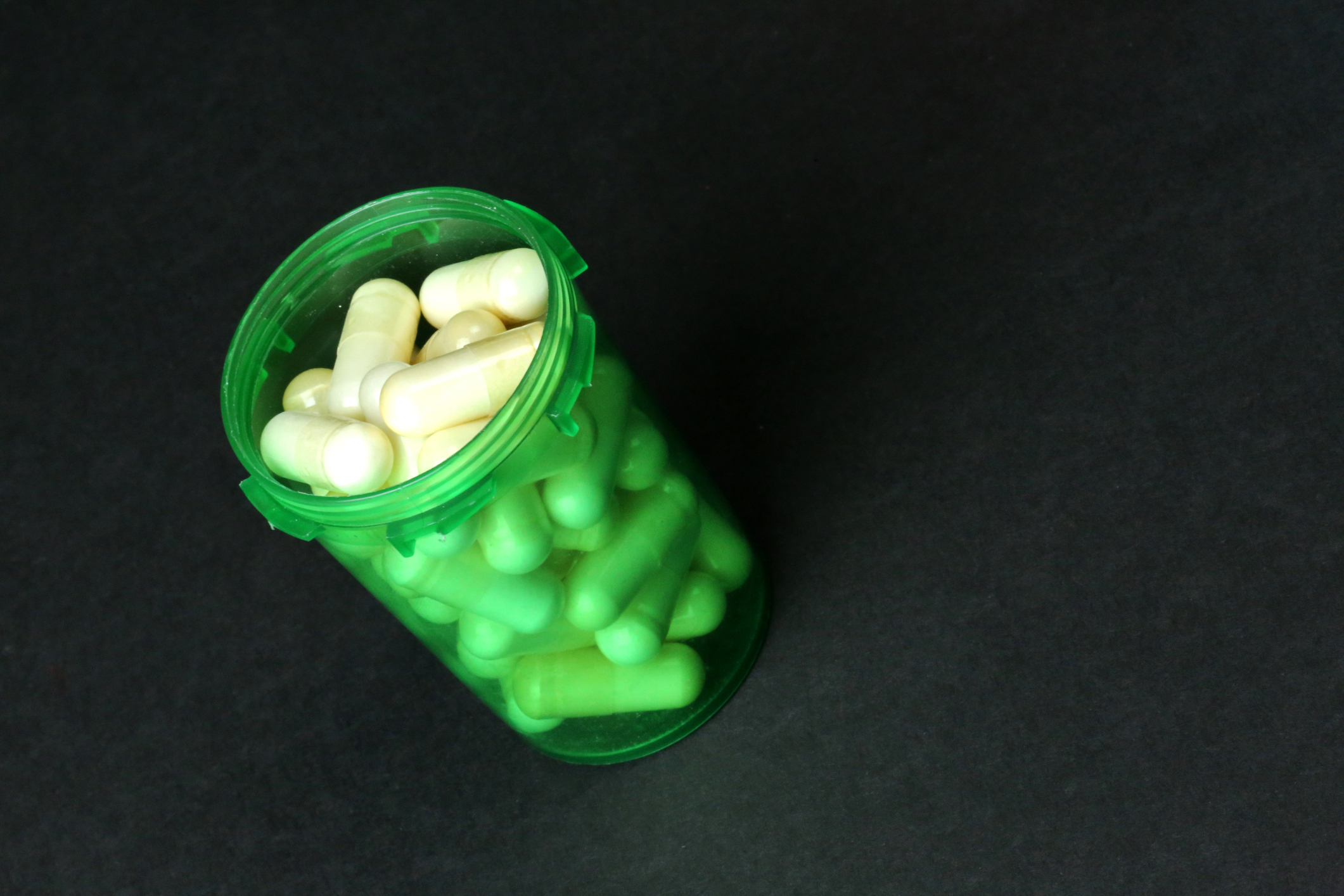Microdosing psilocybin for anxiety and depression? A placebo may be just as good

- Microdosing psychedelics is the act of consuming tiny amounts of a hallucinogen for the purpose of gaining some kind of therapeutic benefit without tripping.
- A recent placebo-controlled, double-blind study explored whether microdosing psilocybin affects emotional well-being and interoception.
- In terms of alleviating depression or anxiety, the results suggest that microdosing psilocybin is about as effective as taking a placebo.
Cave paintings of mushrooms in Africa suggest that humans have been consuming psychedelics for therapeutic and spiritual purposes for millennia. But only in the past decade or so, thanks largely to the American writer James Fadiman, has it become popular to consume psychedelics in a more specific and peculiar way: microdosing. The idea is to ingest a tiny amount of a hallucinogen, like LSD or psilocybin, every few days so that you can reap the purported therapeutic benefits of the psychedelic without experiencing a full-blown trip.
What benefits? Some people claim that microdosing elevates mood, decreases anxiety, eases migraines and chronic fatigue, and inspires creative thinking. For that last reason especially, microdosing became a trendy productivity hack in the 2010s, particularly among tech workers in Silicon Valley. They perhaps viewed microdosing as something like “an extremely healthy alternative to Adderall,” as Fadiman described it in 2015 to Rolling Stone. (On the topic of conventional medication, the 2021 Global Drug Survey found that, of respondents who reported both microdosing and taking prescription medication for mental health reasons, about half reduced or stopped taking their prescriptions because they felt microdosing was sufficient.)
But does microdosing really work? That was the main question behind a recent placebo-controlled study that explored whether microdosing psilocybin — the main hallucinogenic chemical in “magic” mushrooms — improves anxiety, depression, and the overall awareness of what’s happening inside your body. Published in the Journal of Psychopharmacology, the study found no evidence supporting the claim that microdosing psilocybin yields therapeutic benefits.
Microdosing magic mushrooms
The study involved 40 participants in the Netherlands who attended two microdosing workshops. The participants were given two bags of identical-looking pills: one bag contained psilocybin, the other placebos. Over the next three weeks, the participants consumed one bag of pills. After taking a two-week break, they then consumed the other bag of pills over an additional three-week period. At no time were the participants told which bag contained the placebos.
The participants came into the lab for four sessions, two sessions per each of the three-week periods. For these sessions, the participants would ingest a pill, wait an hour and a half, and then complete inventories measuring depression and anxiety or interoception, which is the extent to which you can sense what is happening inside your body. Participants also completed a task that involved looking at images of different facial expressions, which is commonly used to measure emotional processing.
The results found no significant differences between the placebo and psilocybin groups, both in terms of interoception and emotional states (that is, emotional processing and symptoms of depression and/or anxiety).
“Our finding that psilocybin microdosing does not affect symptoms of anxiety and depression contradicts previous survey studies which reported marked reductions in negative emotionality following the repeated microdosing of psychedelic substances,” the researchers wrote.
Does microdosing work?
Do the results prove that microdosing psychedelics has no therapeutic benefits? Not necessarily. The authors noted that many anecdotal reports and observational studies suggest that microdosing can alleviate, at least in part, depression and anxiety, while studies involving larger doses of psychedelics suggest that the drugs can yield long-lasting psychological benefits.
But it is worth highlighting the paucity of experimental microdosing studies on humans: Before the recent study, only four such experiments had been conducted, three of which found no evidence that microdosing reduces symptoms of depression or anxiety.
Still, the authors of the recent study leave open the possibility that their experiment could have missed something. After all, the participants were all people who had already agreed to attend a microdosing workshop, meaning the study suffers from selection bias.
The participants also made their own psilocybin doses at the workshop, meaning doses likely varied from person to person. Furthermore, the study had a small sample size, partly due to the exclusion of participants who violated the experiment’s behavioral guidelines. It is also possible that the study results would have been different if participants had consumed, say, LSD instead of psilocybin.
More broadly, the study highlights an inherent problem with trying to do placebo-controlled research on psychedelics: Because even small doses of hallucinogens can noticeably warp perceptions, participants often can tell whether they have received the real thing instead of a placebo (as happened with some participants in the recent study).
“This confound needs to be considered in future studies to more reliably establish the potential promises and pitfalls of using psychedelic microdosing,” the authors concluded.
The growing body of research on psychedelics suggests that the drugs do possess therapeutic benefits, but it will take more research to illuminate what exactly those are, how strong of a dose is needed to produce them, and the therapeutic potential of psychedelics whose hallucinogenic properties have been stripped away.





